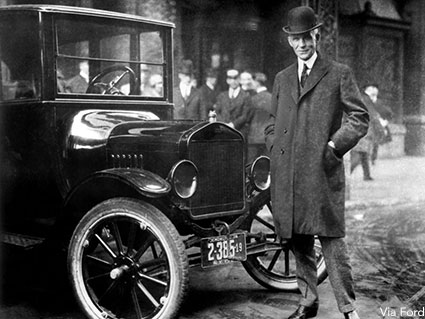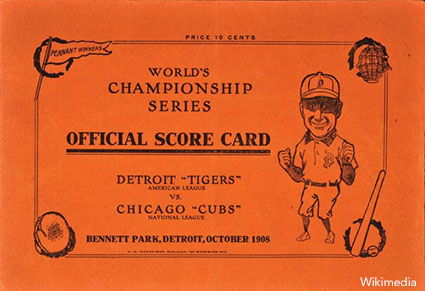With the world in the palm of our hands, driverless cars and cross-country airline flights taking off hourly, it can be hard to imagine the world in which the Chicago Cubs won their last World Series back in 1908.

The Cubs' last World Series win is the stuff we study in history books. The turn of the century was a time when the main mode of communication was letter writing and talking to each other and most people still got from place to place on foot or horseback. Air flight was new-fangled technology that the Wright Brothers were still tinkering with.
But 108 years ago, life was definitively simpler – and shorter (average male life span in the U.S. was 49 1/2).
Cars didn't clog roads across America. Heck, there weren't even roads that crossed all corners of our great nation, and 1908 was the year Henry Ford began mass production of the Model T (price: $850).
There were only 46 states (New Mexico, Arizona, Alaska and Hawaii had yet to join) and the fewest people ever – 6,210 – watched the Cubs win their last World Series, a five-game victory against Detroit.

Without the year 1908, baseball would be a completely different game. It was the year the sacrifice fly became an official stat for the first time, the year that "Take Me Out to the Ballgame" was written on a scrap of paper on a train ride, and the year Abner Doubleday officially got credit for inventing baseball.
As the Cubs focus on breaking the "Curse of the Billy Goat," we thought it would be fun to harken back to the days when the average hourly wage in the U.S. was just 22 cents, and women were still bound by corsets. Below is a look back at the highlights from 1908:










